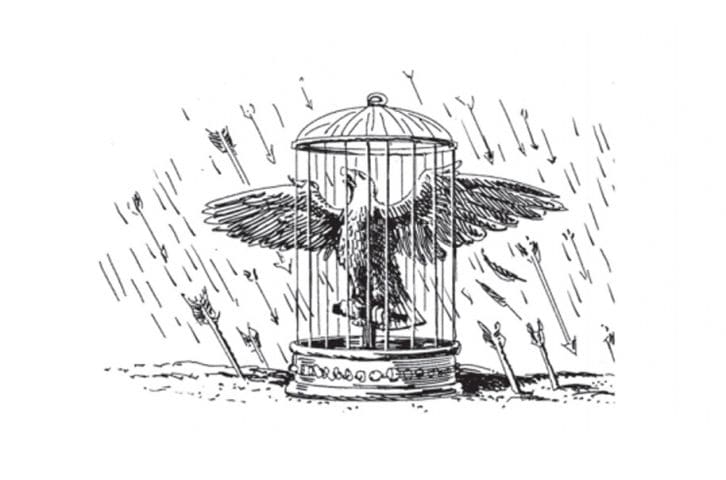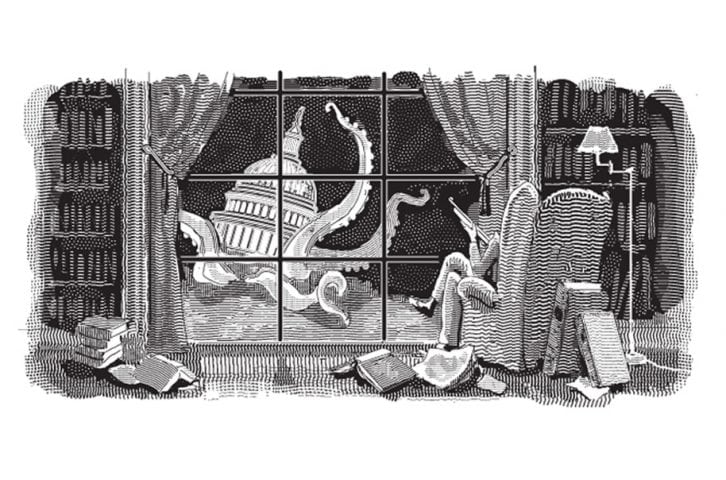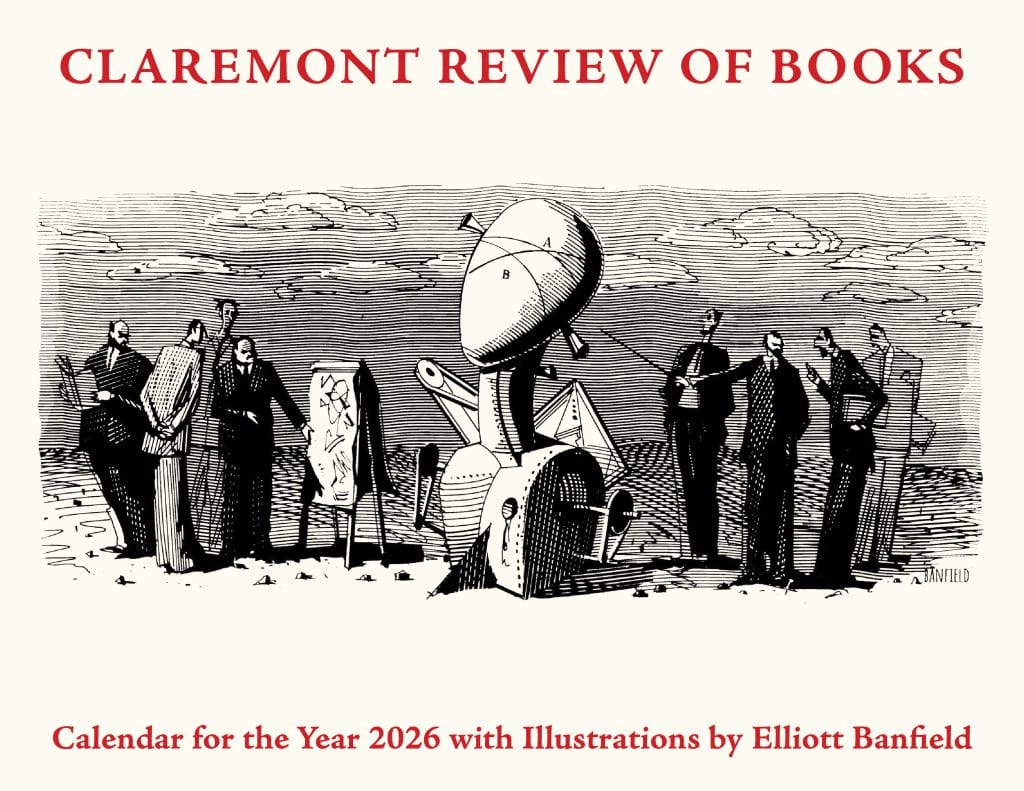Books Reviewed
From the start, many Americans saw Europe as corrupt and decadent, prone to aristocratic politics, venal economics, and predatory wars. We might call this the republican image of Europe. Later, Americans came to see Europe as a living museum, good for visiting to see relics of the past. This is the American tourists’ conception of Europe. And at least since 1945, Americans have considered Europe an experiment in social democracy. In America’s current health-care debate, conservatives invoke Europe in just this way with caution and concern, and liberals with occasional praise or envy. Call this our social-welfare image of Europe.
To this list, Christopher Caldwell would add a fourth image. He sees Western European countries plagued by crime and other indicators of a fraying, even rent, social fabric, their core liberal values and way of life challenged by dissenting minorities, and their societies unprotected by political elites who are temperamentally and intellectually too flabby to defend what deserves to be defended and to resist what needs to be resisted. This is the neoconservative view of Europe, not in the sense of calling for an invasion (we tried that), but as in the critique of U.S. society that Irving Kristol, Daniel Patrick Moynihan, James Q. Wilson, and others mounted in the 1960s and ’70s. Kristol and the other original neocons saw the American experiment at risk in those years. They warned that the minimal social cohesion and agreement on values required for a stable, effective liberal society were under assault, most flamboyantly by campus demonstrators and urban rioters, and most corrosively by rising crime. In addition, intellectual radicals were making demands that stood to undermine the foundations of liberal democracy. To the neocons’ disgust, many politicians, social commentators, and institutional leaders—instead of standing up to all this—flinched, compromised, and capitulated.
A columnist for the Financial Times, contributing writer for the New York Times Magazine, and senior editor at the Weekly Standard, Caldwell sees many of the same dynamics at work in Europe, but with a twist. The forces currently laying siege to the citadels of European liberalism are millions of immigrant and first- and second-generation European Muslims, whose families originated mainly in North Africa and Turkey.
European integration has of course permitted migration across its internal borders, and many residents and citizens of European countries categorized today as “foreign born” are in fact transplants from elsewhere in the European Union (E.U.). But during their great post-World War II economic boom, West European countries also invited in large numbers of laborers from outside the region, most famously under the label of Gastarbeiter—guest workers. As that name implies, their presence was assumed to be temporary. But the workers saw it otherwise, and started to make homes for themselves on European soil.
Economic downturns ostensibly closed the doors to new immigrants from outside the E.U. in the 1970s and 1980s. But family reunification and then waves of people seeking asylum from wars and worse ensured that Europe’s immigrant populations continued to grow prodigiously. Crucially, even as what might be called indigenous Europeans are having many fewer children—author Mark Steyn calls this “the gelded age”—these immigrants from outside the region are having many children. The result, Caldwell says, is not just that in “almost all Western European countries, the population of immigrants and their children approaches or surpasses 10 percent.” It is that
[a] fifth of the children in Copenhagen, a third of the children in Paris, and half of the children in London are born to foreign mothers. French-born women have 1.7 children apiece, but foreign-born women in France have 2.8 children. Tunisians, Turks, and Moroccans average between 3.3 and 3.4, more than their counterparts in their home countries.
As a result, many cities will almost certainly eventually become dominated by people whose family histories trace to North Africa or South Asia.
Caldwell concludes that “[t]he demographic and cultural weight of Islam in the world continues to grow, and Europe is the place it is growing fastest.” And it is the Muslim-ness that is the issue for him. Comparable numbers of Latin Americans have immigrated to the United States, but he points out that these Hispanics largely share other Americans’ religious heritage and attitudes toward marriage, national pride, and many other aspects of social and political life. That makes them good candidates for long- and even medium-term assimilation, even as they help reshape American culture along the way, through food, music, and other contributions.
In contrast, Caldwell insists, Europeans are “not dealing with an ordinary immigration problem at all, but with an adversary culture.” He says that many European Muslims do not and will not anytime soon share core values with their new fellow citizens, and in too many cases have not developed basic allegiance to their new countries. Compromised or even dual loyalties may explain why, say, British Muslims volunteer for the military at startlingly low rates, why they refer to the U.K. as “my country” at low rates that decline among younger respondents, and—most disturbingly—why a substantial slice voiced support for the horrific 2005 London bus bombings and why a few even volunteer to fight in Iraq as insurgents targeting British soldiers. On more workaday issues, Caldwell observes, Muslim faith has big implications for gender roles, dress codes, foods, and sexual mores. These topics add up to much of the stuff of daily life, and have led diverse European Muslims to demand institutionalized accommodation on meals, holidays, gender segregation, dress codes, polygamy, speech, and much more.
* * *
Caldwell thinks it important that Muslims in France, Britain, Germany, and other countries seem highly confident in making such demands, suggesting that this reflects a civilizational confidence now visible in Islam’s adherents worldwide. For example, in Germany, “68 percent of Turks think their religion is the only true one, versus just 6 percent of [non-Muslim] Germans.” This cultural confidence is accompanied by political ambition. Polls suggest that large minorities, even majorities, of European Muslims want to see their new countries become Islamic states or adopt sharia law. This suggests to him that Muslim assimilation into mainstream European societies is unlikely anytime soon. He notes that in Britain, where the record of integration is in many ways the best, in “virtually all polls, British Muslims stand out as significantly more radical than all other European Muslim populations.” The current global spirit of Islamic pride may be leading once-distinct Muslim communities across Europe “to converge into a larger Muslim culture,” which suggests that many of the region’s younger Muslims are if anything “dis-assimilating.”
Caldwell reserves special attention for Europe’s political and intellectual elites. He compares their behavior to the “hand-wringing inaction” with which so many American leaders greeted grave problems in their own midst in the late 1960s. In Britain, France, Germany, Italy, Sweden, the Netherlands, and elsewhere, elected officials, bureaucrats, and commentators repeatedly have proven unable to respond to illiberal challenges from activist Muslims. He is not sure how to explain this. At some points, he refers to an intellectual failing, saying these leaders lack a “moral code that would give answers” to immigrants. At others, he detects a self-loathing, according to which “Europeans were coming to despise their own cultures” and thus proved unwilling to defend them in the face of demands that they, and not immigrants, be the ones to change. And at yet other points, he paints Europeans as downright intimidated by the Muslims among them, perhaps because of events like periodic riots in France, the savage murder of Theo van Gogh in 2004, the murderous Islamist response to the Danish cartoons the next year, and Salman Rushdie’s years in hiding.
* * *
Whatever the cause, European elites have flinched. They have shown they lack the backbone, self-confidence, or je ne sais quoi to defend their way of life. And this matters because the habit of sacrificing liberal practices to spare illiberal Muslim sensibilities might lead to the compromising of modern liberal values themselves. Caldwell does not identify a lot of movement so far down that particular road. His best example is expanded speech codes, which increasingly criminalize certain types of speech that “offend” listeners, Muslims or otherwise, and the general ostracizing of commentators who express concern over these illiberal trends. He remarks acidly that “[a] democracy cannot long tolerate a system that makes an advanced degree in sociology or a high government position a prerequisite for expressing the slightest worry about the way one’s country is going.”
Just as the original neoconservatives warned that weakness or prevarication in the face of a challenge invites disrespect and aggression, Caldwell suspects that “[t]he largesse, nonjudgmentalism, and leniency of European governments bred contempt” among its challengers. He closes by warning that “[w]hen an insecure, malleable, relativistic culture meets a culture that is anchored, confident, and strengthened by common doctrines, it is generally the former that changes to suit the latter.”
But, also like the neocons of old, he is not without hope. Above all, like them, he insists that the reassertion of social authority can rescue even dire situations. France is front and center here. Caldwell predicts that France is best-positioned for “fully assimilating the children and grandchildren of immigrants,” because its still-muscular “republican traditions” endow its possessors with the moral self-confidence needed to insist that everyone at the table must share rules of the social and political game. So, for example, a French proposal to ban Muslim girls from wearing veils in public schools was greeted with large demonstrations and threats of worse to come. “But once France’s resolve became clear, the marches fizzled out” and the vast majority of those affected complied with the new rules.
For Caldwell, this resolve has a name: Nicolas Sarkozy. France’s president has insisted that democracy is strong, not weak, so long as its citizens make it so. He insists that true integration of immigrants must be made available, and also mandatory. In the face of bullying, he exudes “toughness,” insisting that “[t]he response to riots is not spending more money and putting it on the back of the taxpayer. The response to riots is to arrest rioters.” This is designed not to crush or exclude but to bring out the best in everyone: “When they see you’re not afraid, they respect you more,” and become better citizens as a result. “Sarko” also champions what Americans call affirmative action in education and job-seeking. He seems to offer immigrants a grand bargain: you will be brought into the Republic, but on certain essential matters, this must be on the Republic’s terms. In the process, France might well change but the Republic will not.
A robust stance of this kind might be capable not only of cautioning extremists and encouraging European Muslims to integrate successfully, but also of rallying Europe’s “silent majority,” to whom Sarkozy has made virtually explicit reference. Caldwell comments that many average Europeans have searched for “some sign of state action against the Islamization of institutions,” and have responded favorably to politicians willing to defend social order in responsible ways.
* * *
This cause for hope is predicated on what Caldwell considers vast cause for concern. But how justified is that concern, which he shares with a number of others? Caldwell’s argument that Europe’s Muslim communities are maturing a large-scale illiberal impulse is based on evidence that is less statistical than anecdotal, i.e., individual stories from over a half-dozen countries. That his data is not more systematic is largely the fault of Europe’s scholarly and journalistic institutions, which have largely steered clear of the trends and events that he says should preoccupy us. One need look no further than the speed with which France’s 2005 riots disappeared into the research memory hole. But whatever the cause, we are left unsure to what extent dis-assimilation, illiberalism, and extremism characterize Muslim Europe. The closest Caldwell comes to systematic measures are public opinion polls on disparate issues, often conducted on single-country bases. These reveal nasty or worrisome opinions held by sizable minorities and sometimes majorities of European Muslims. But in a world rife with cheap talk and posing, it remains unclear what relationship exists between survey responses and the kinds of authentic beliefs on which behavior is based.
There is an even more important concern, though. Clearly, many European Muslims are being affected by a global surge in Islamic identity politics. As Caldwell puts it, even Muslims who may not practice their faith still believe in “Team Islam.” This era of Islamic fervor has its historical counterparts in other communities. But those very parallels offer some caution to those who would extrapolate from current events. In the other cases, periods of fervor faded in time. In the case of contemporary Islam, that fading might be only a decade or two away. If only we had confidence that Western Europe, in every sense of the term, could afford to wait it out.







